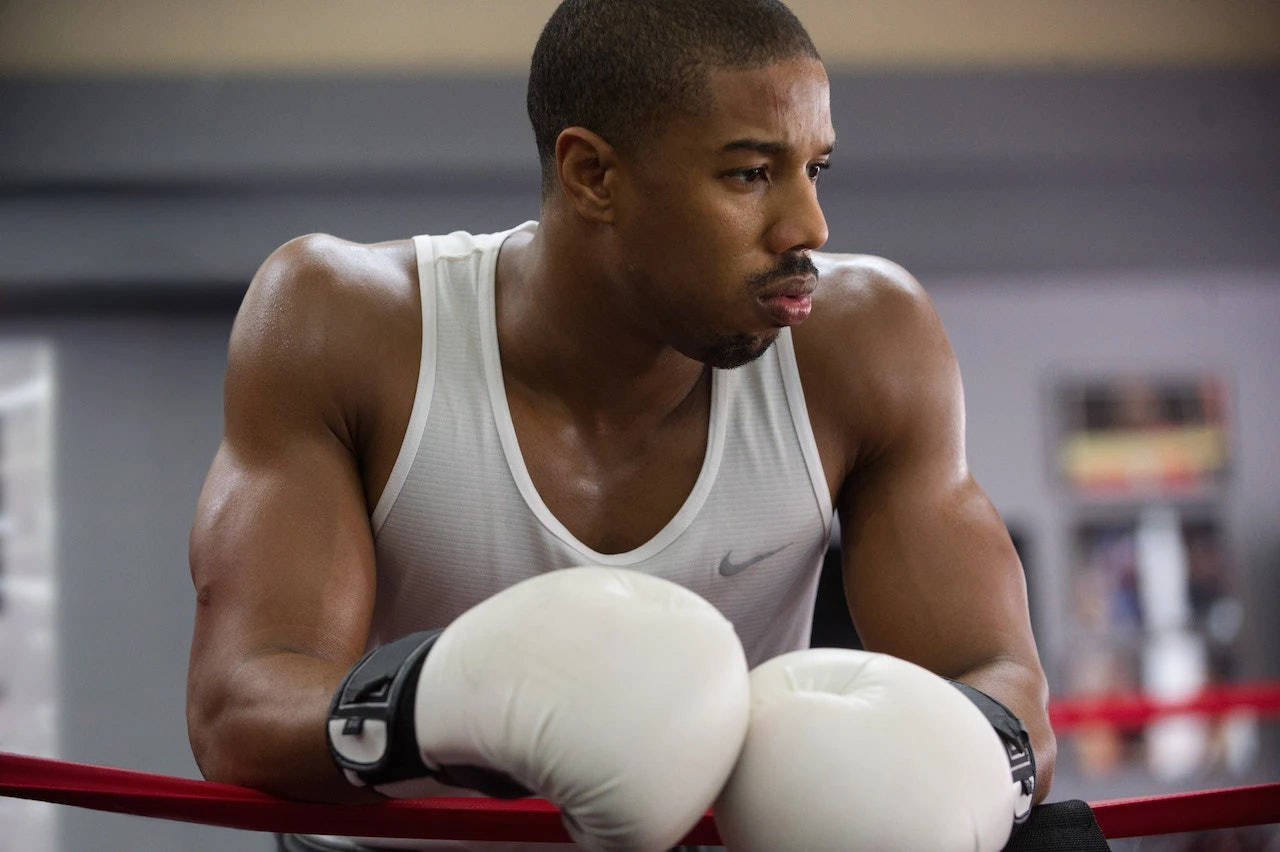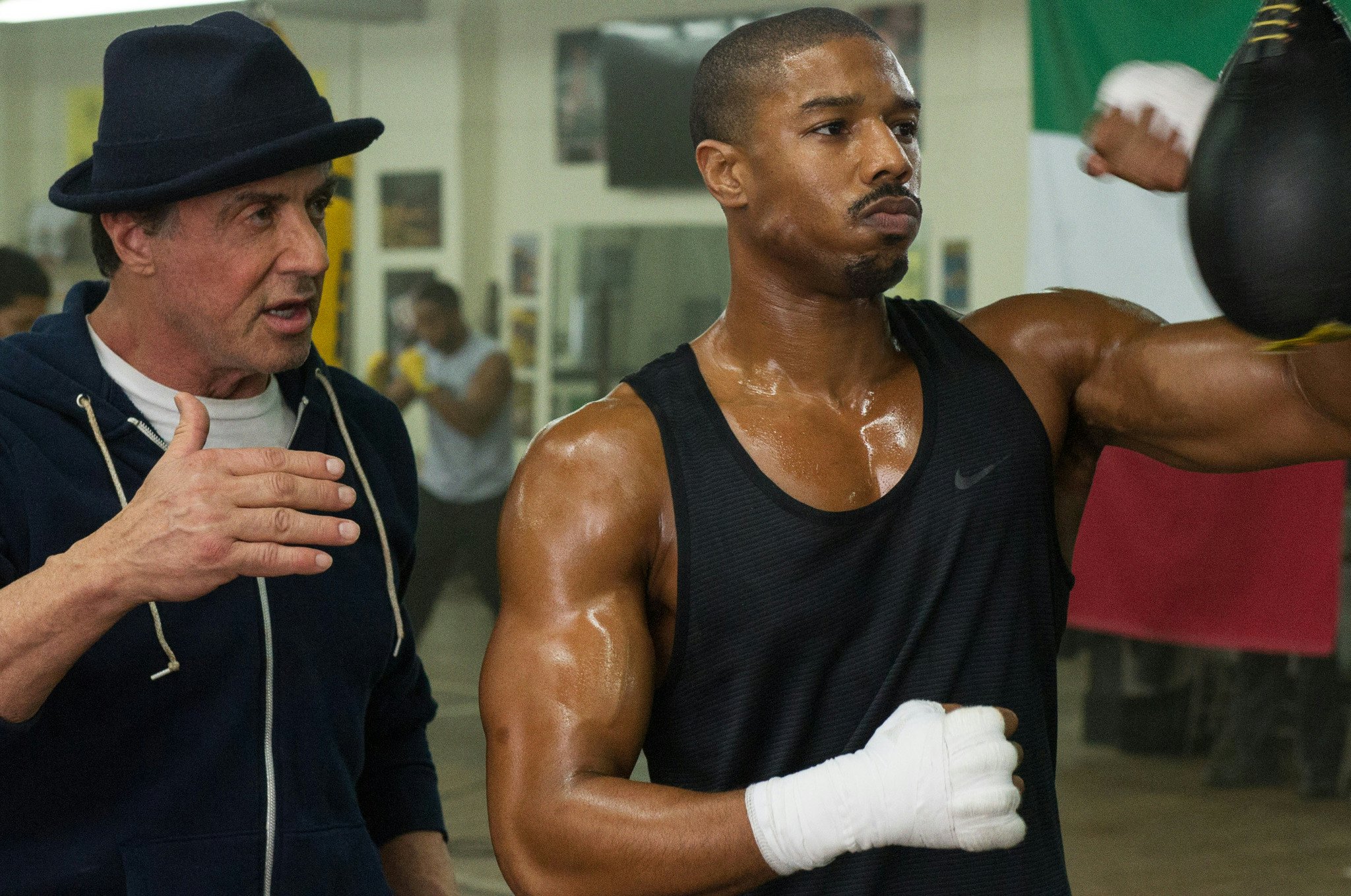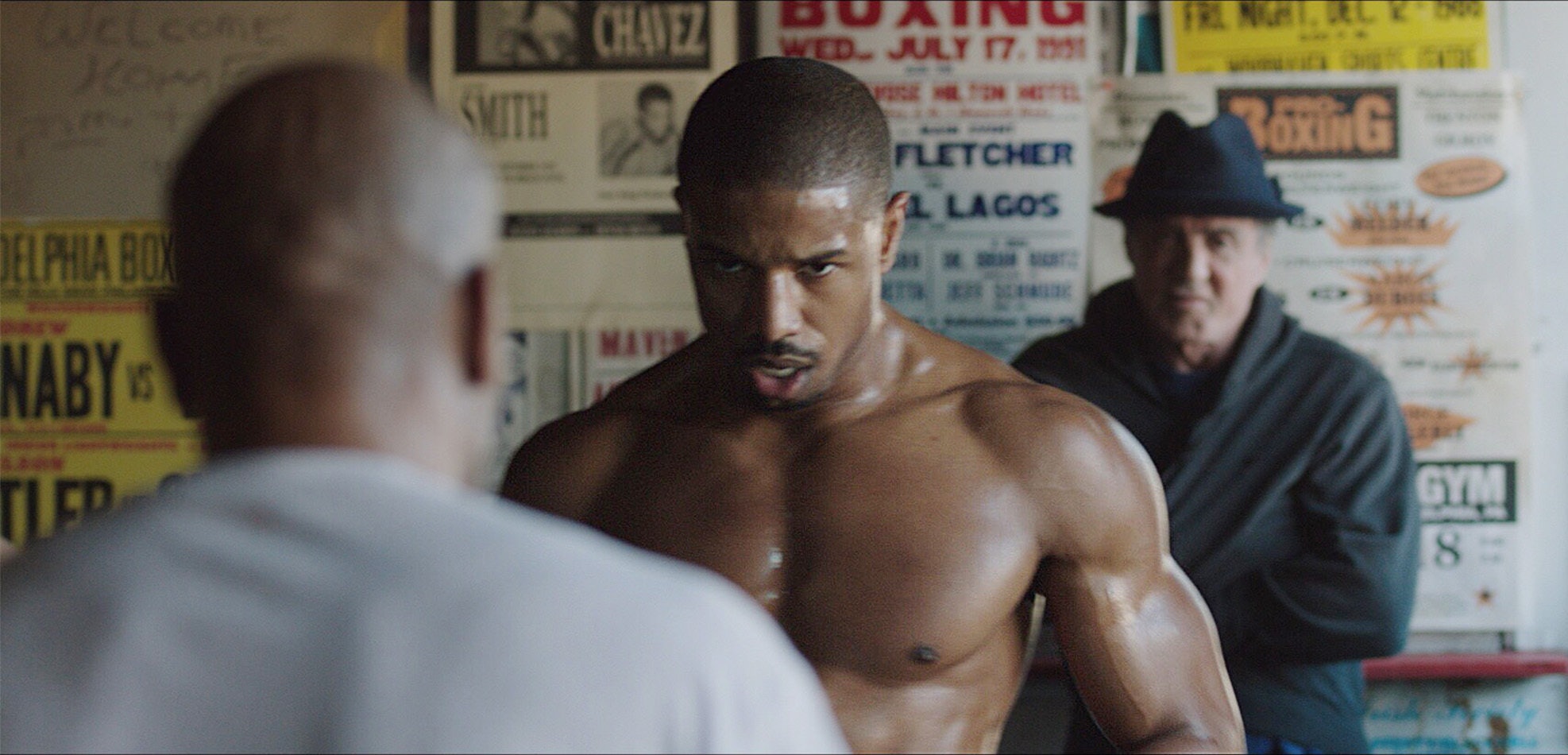
Sitting in a movie theater watching trailer after trailer for sequels and reboots and remakes, it’s easy to be cynical about how Hollywood seems to be completely out of original ideas, returning constantly to the well of nostalgia and familiarity because it’s the closest to a reliable strategy they have. A sci-fi blockbuster franchise from the ‘80s is returning. A beloved sitcom from the ‘90s is being revived. A new actor has been cast in the third film version of a B-list Marvel superhero.
But sometimes, you see something that makes all that cynicism melt away: a movie that isn’t just great in spite of being a franchise reboot, but one that could not exist any other way. Something like Creed, the best reboot ever.
Also read: The 25 Best Movie Reboots of All Time, Ranked

The Rocky series, created by star Sylvester Stallone, had come to an end in 1990 with Rocky V, a critical and commercial disappointment widely considered the nadir of the franchise. It returned in 2006 with Rocky Balboa, less a regular sequel and more a coda to the saga. Stallone got to give Rocky a graceful ending, the fans were happy, and then… that was it. He was an old man now, retired from boxing, and there was seemingly nowhere else to go.
Flash forward nine years. Ryan Coogler’s 2015 revival of the Rocky franchise, Creed, follows Adonis Johnson (Michael B. Jordan), the illegitimate son of Rocky’s former rival/trainer/friend Apollo Creed (Carl Weathers). In a fairly major retcon to the Rocky mythos, it reveals that between the events of Rockys III and IV, Apollo had an extramarital affair that resulted in Adonis. He was born after Apollo died in the ring fighting Ivan Drago in Rocky IV and never knew his father. And yet, Adonis finds himself drawn to boxing, obsessed with it. When he decides to pursue it professionally, he moves to Philadelphia to track down the man he hopes will become his trainer: Rocky Balboa.

Like many reboots and legacy sequels, Creed features the aging hero of the original films passing the reins of the series to a new generation. But what’s so striking about Creed is how not nostalgic it is. Sure, it delivers the basic requirements of a Rocky movie: an underdog boxer, a training montage, a female love interest, a Philadelphia setting. But it’s telling its story in its own way.
Where Rocky was a lovable lunkhead, an openhearted goofus who just wanted to be friends with everyone he met (even his opponents), Adonis is the opposite — constantly guarded and coiled so tight he’s ready to burst. Adonis’ love interest, Bianca (Tessa Thompson) isn’t a mousy petshop employee like Adrian was. She’s a musician, just as ambitious in her career as Adonis is in his. The movie has its own visual language, introducing the various fighters with ESPN-esque freeze frames as their stats slam onscreen. Cinematographer Maryse Alberti’s camera is constantly following Adonis, looking over his shoulder in long tracking shots — most famously, the spectacular extended single-take fight in the middle of the movie — with an urgent visual style completely unlike anything the Rocky series had ever done.
Many reboots are in love with the original films to a fault. For all the zippy fun of The Force Awakens, its story is a beat-for-beat remake of the original Star Wars, resetting the status quo to rehash the same old conflict. Ghostbusters: Afterlife is in awe of the original film to such a degree that it rehashes the exact same conflict and villain as the original, and treats every returning prop and character with such wide-eyed reverence that, in the process, it forgets these movies are supposed to be comedies.
But Creed never fetishizes the past. When Rocky and Adonis go to Mighty Mick’s Gym, it’s been cleaned up and polished, with none of the grizzled charm Burgess Meredith brought to it decades ago. So they move their training to a new place: the Front Street Gym. When Adonis’ mother, Mary Anne (Phylicia Rashad) sends him Apollo’s old trunks to wear in the final fight, with “Creed” emblazoned across the front, she has had his birth name, Johnson, newly stitched on the other side — connecting past and present.
The film’s emotional peak is not the triumphant end of the final fight; it actually comes a few minutes earlier. Adonis is knocked to the ground by a devastating punch and goes unconscious. Time seems to freeze. In a series of cuts, Coogler shows us the thoughts racing through his mind. Himself. His mother. Bianca. Rocky. Then, a split-second shot of Apollo. Adonis gasps awake and rises to his feet, resurrected.
Rocky wants to call off the fight, but Adonis won’t let him. “I have to prove it!” “Prove what?” “That I’m not a mistake.” This is what Adonis has been fighting with the entire film but has never spoken aloud. This is why he was drawn to the sport that killed his father. He needs to prove to himself that he’s more than an embarrassing footnote in the biography of a man he never met.
As Rocky gives him one last emotional pep talk, telling him, “You’re a Creed, and I love you, kid,” Adonis rises to his feet. And then, for the first time in the film, we hear “Gonna Fly Now,” Bill Conti’s Rocky theme song, play. It’s one of the most immediately iconic pieces of film music ever written, and Coogler doesn’t use it until he’s fully earned it. Until Adonis is ready for it. A full two hours into the film.

When I saw Creed in theaters back in 2015, I had only ever seen the original Rocky. I knew the basics, but I hadn’t yet seen Rocky and Apollo become friends, racing each other in slow motion on the beach. I hadn't seen Rocky cradle Apollo’s dead body in his arms. But that didn’t matter — Creed played like gangbusters, and I was hooting, hollering, and cheering at the screen during the final fight along with the rest of the sold-out crowd.
But revisiting it a few years later, after catching up on the entire Rocky series, made it a totally new experience. Watching the saga play out, and seeing the journey the characters went on, gave everything in Creed a new dimension. This movie isn’t going the easy route of many reboots, replaying the classic theme music, doing homages to iconic moments, quoting iconic lines. It’s building on the history of what came before, taking even the silliest, most cartoony installments in the series (i.e. the one with Paulie’s robot) completely seriously. It’s evolving the essential part of the Rocky movies: how the specter of death hangs over everything. In Rocky II, Adrian spends much of the movie in a coma. In Rocky III, Rocky’s trainer Mickey dies. In Rocky IV, Apollo Creed is killed in the ring. Between the fifth and sixth installments, Adrian passes away.
And Creed finds its own variation of that theme. Bianca, Adonis’ girlfriend, is a musician dealing with progressive hearing loss, forced to accept that soon she will lose the ability to do what she loves most. And halfway through the film, Rocky himself is diagnosed with cancer. At this point in his life, he’s seen everyone he ever cared about die, and is ready to give up. But Adonis is there to remind him that this is the whole point of the Rocky series: fighting relentlessly against mortality, no matter how much the odds are stacked against you.

Every reboot comes with a built-in metanarrative about the series itself, about being a reboot and grappling with the legacy of the original. Creed pulls off the near-impossible balancing act of a perfect reboot: It works just as well for lifelong, die-hard Rocky fanatics as it does for brand-new viewers. If you’ve never seen a Rocky movie and know nothing about Apollo Creed? That’s fine. Adonis never met him either. Instead, Creed is a Rocky movie with a hero who doesn’t want to be the star of a Rocky movie. It’s when Adonis finally accepts that he is a Creed, and that he deserves to be the star of a Rocky movie, that Creed comes into its own.
Earlier this month, Creed III was released, and for the first time in the series… Rocky isn’t there. Don’t worry, he didn’t die offscreen between movies. He’s just not around this time. Creed began as a Rocky reboot, with Rocky moving into the role of the mentor. He was the constant throughout the entire series. But now Creed has arrived at a point that few reboots ever do: It no longer needs to lean on its legacy characters. It can stand on its own two feet. As Yoda said about mentors in another great reboot, “We are what they grow beyond.”







